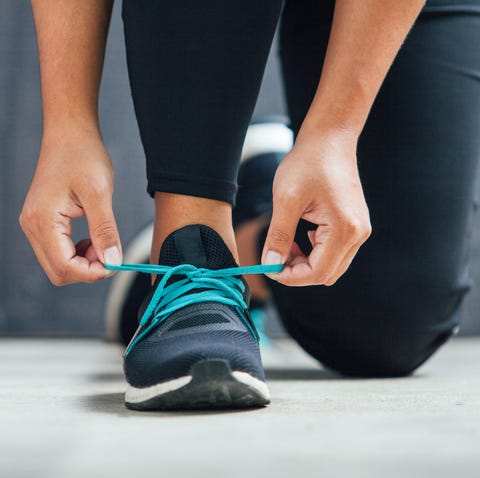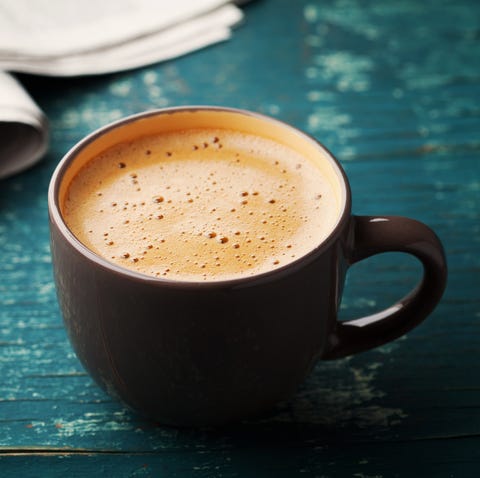Nearly everyone has had headache pain, and most of us have had it many times.
A minor headache is little more than a nuisance that's relieved by an over-the-
counter pain reliever, some food or coffee, or a short rest. But if your headache is
severe or unusual, you might worry about stroke, a tumor, or a blood clot.
Fortunately, such problems are rare. Still, you should know when a headache
needs urgent care and how to control the vast majority of headaches that are not
threatening to your health.
Working out with a pounding head doesn't exactly sound ideal, but hear this out:
"Exercise can help because exercise releases endorphins, which are natural pain
killers," Dr. Newman explains.
Shoot for at least 150 minutes of moderate-intensity exercise for week, the U.S.
Department of Health and Human Services advises. That can include walking,
swimming, biking, jogging, or your favorite heart-pumping class at the gym.

2_ Hydrate
The first thing to try to get rid of a headache without drugs is to drink water or an
electrolyte beverage. This helps because dehydration s a common cause of a
headache. This is especially useful to get rid of a headache that results from
drinking alcoholic beverages (a hangover headache). Ideally, choose an
electrolyte beverage without artificial colors and sweeteners as these can add to a
headache. Packets of powdered drink mixes, such as those mixed with vitamin
C, are good options. If you have diabetes, it is important to look carefully at the
sugar content of the drink.
3. Eat regular meals every day.
If you’re not already eating breakfast, now’s the time to start. Fueling your body
from sunup to sundown can also help keep headaches at bay. “If you can’t have
three meals a day, at least have small, healthy snacks like almonds or raisins
throughout the course of the day,” Dr. Newman advises.
4. Warm compress
In other cases, such as with a tension headache where the muscles are too tight, a
warm compress may help relax these muscles and bring relief.
A warm compress could be as simple as a heated towel. People may be able to
get the same effect from a tepid shower or bath.
5. Limit Alcohol
While having an alcoholic drink may not cause a headache in most people,
studies have shown that alcohol can trigger migraines in about one-third of those
who experience frequent headaches .
Additionally, alcohol acts as a diuretic, causing the body to lose fluid and
electrolytes through frequent urination. This fluid loss can lead to dehydration,
which can cause or worsen headaches.
Alcohol has also been shown to cause tension and cluster headaches in many
people.
6_ Hot or cold compress
Applying a hot compress to the back of the neck or forehead can relax tension
and ease vasoconstriction. For some people, a cold compress may feel better. A
combination of heating creams (Bengay or similar) and self-massage into the
sore muscles of the neck or upper back can help relax the muscles.
7. Remove any pressure on the head
In some cases, there is a physical reason for a headache. Check for anything that
is putting too much pressure on the head. This may be a ponytail or bun that is
too tight or a hat or headband that has been on too long.
8. Use Essential Oils
Peppermint and lavender essential oils are especially helpful when you have a
headache.
They have many therapeutic benefits and are most often used topically, though
some can be ingested.
Meanwhile, lavender oil is highly effective at reducing migraine pain and
associated symptoms when applied to the upper lip and inhaled .
Applying peppermint essential oil to the temples has been shown to reduce the
symptoms of tension headaches.
9_ Yoga
The yoga practice included breathing techniques (pranayama) and yoga postures
(asana). Simple stretching can also be helpful for headaches. Try doing some
gentle neck rolls, stretching the jaw, and stretching each ear toward the shoulder.
One research study has shown that yoga can be effective for headaches.
10. Drink some coffee.
"There’s good evidence that if you do drink caffeine, you need to stay stable on
the dose because reducing significantly can precipitate a withdrawal headache,"
Dr. Rosen says. Since drinking too many caffeinated beverages can cause
headaches in some people, try to average less than 150 milligrams of caffeine per
day (about two 8-ounce cups of coffee), he adds.









0 Comments